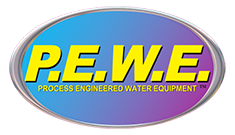
In waste water treatment systems, around 85 to 95% of pollutant material is removed from the water before it is released into waterways. A key component of this process is the chemical feed station. Essential to the chemical dosing system, a chemical feed station allows for the dispensing of water treatment chemicals without the need for manual handling.
When chemical feed stations are used in conjunction with other purifying water equipment, they are capable of helping to correct even the most contaminated waters. It’s important to know that specific conditions facilitate the need for a chemical feed station. These can include:
- Oxidation
- Coagulation
- Sale Control
- Corrosion
- Disinfection
- Flocculation
In these instances, a chemical feed system is essential to ensure that the water conditioning system is able to operate optimally.
More Than Disinfection
While chemical feed stations have long been used to disinfection, that is just a small part of what they can do. In many water treatment plants, chemical stations are used to feed chemicals to control corrosion, coagulation, and pH levels so that everyday Americans can enjoy the clean water that comes from their taps. Additionally, these stations are used during wastewater treatment for the purposes of dechlorination, flocculation, pH control, and disinfection. Because of this, cycled wastewater can be reintroduced to the environment without the fear of contamination.
Improving Treatment Systems
Chemical feed stations also have the potential to improve the overall performance of water treatment systems. This is because stations can provide chemical oxidation that helps mitigate issues with high iron, hydrogen sulfide, and manganese concentrations. In cases where these concentrations are severely high, a chemical feed system by being the only way to ensure a system continues working properly and efficiently.
Additional Applications
Furthermore, chemical feed stations can also be used to introduce hydrogen peroxide and potassium permanganate as either a filter regenerant or oxidant. Feed stations are perfect for introducing strong acids for both pH control and anticoagulants, as filter aids help prevent conditions that cause colloids.
Chemical feed stations can be crucially important tools when it comes to water purification and regulation. If you currently aren’t using a feed station, consider reaching out to a manufacturer to see what types would be right for your system. Not only are manufacturers a great source of knowledge, but they can help you select the right chemical feed station to ensure you get the best results possible.


